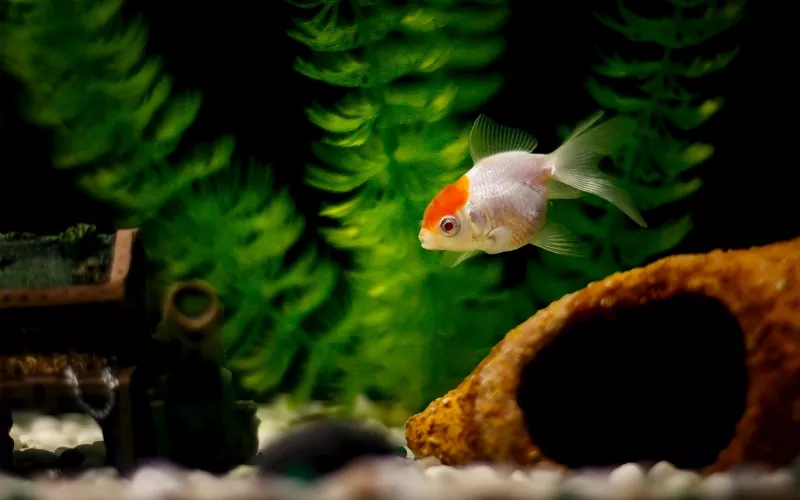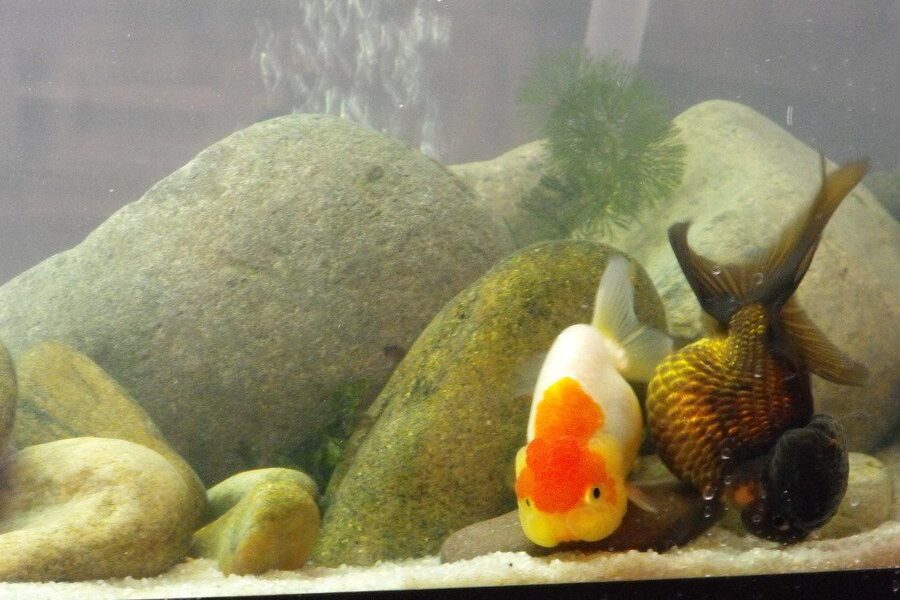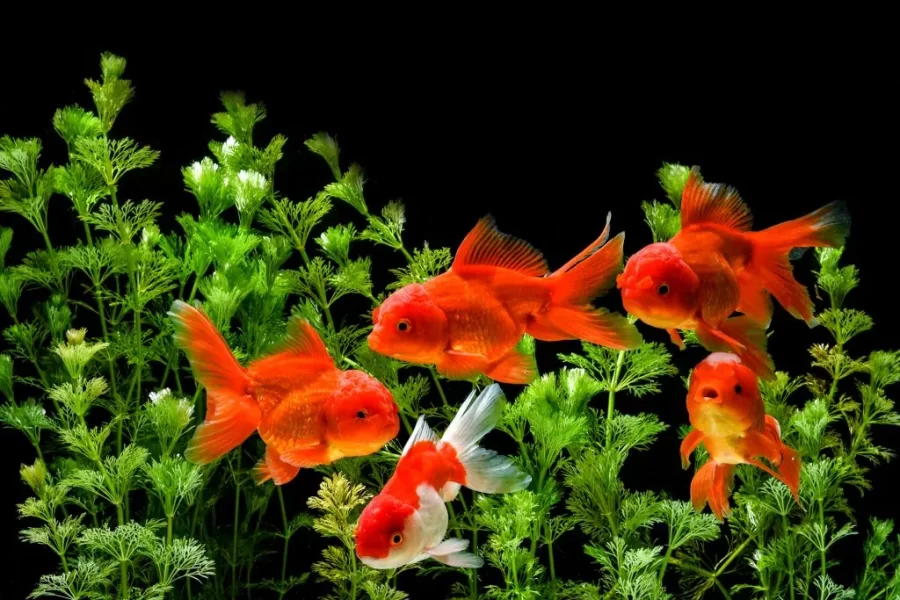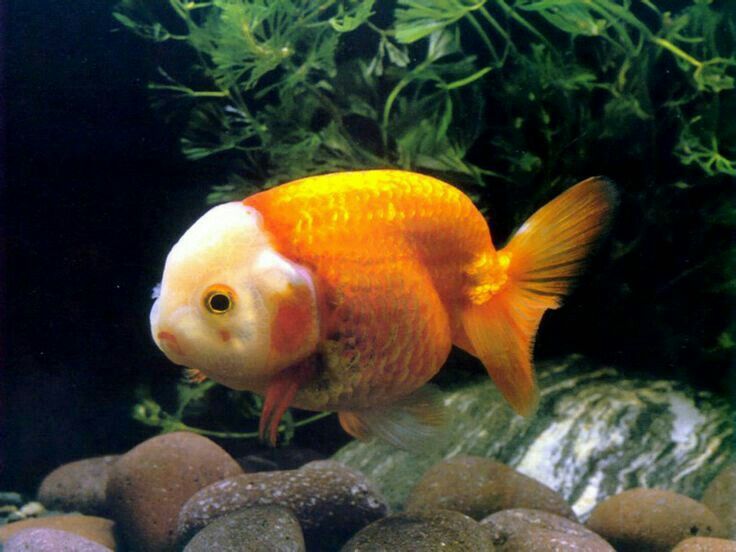
Are you stuck in the “Losing Cycle” with your goldfish tank? Well, then you’ve just hooked yourself a lifeline. Picture this: you and your finned friends swimming out of that vicious cycle together, into a sea of health and happiness. Sounds fishy? Trust us, it’s not!
This easy-to-read guide is like having a friendly chat about your goldfish tank troubles over a cup of coffee. We’ll dive deep into why your little swimmers might be struggling and, more importantly, how you can turn the tide. This isn’t rocket science, or even marine biology—it’s just good, clear advice that any goldfish parent can understand. So, let’s swim right into it, shall we?
Understanding The Goldfish Tank Environment
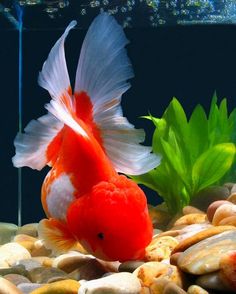
The first step to breaking the losing cycle in your goldfish tank lies within understanding the environment. It’s like entering a foreign country without a guide. You know you’re in for a quest full of discoveries. Let’s dive in.
How Goldfish Interact With Their Tank
Just like we humans interact with our homes, goldfish have their unique ways of communicating with their habitats. They feed around, swim across, and even peek outside the glass walls. Think of a goldfish as an underwater astronaut exploring its alien universe.
Ideal Conditions for a Healthy Goldfish Tank
It’s all about balance, really. For a tank to be goldfish-ready, temperature, pH levels and tank size must hit a perfect sweet spot. While a “one-size-fits-all” formula doesn’t exist, think less “The Shape of Water” and more “Finding Nemo.”
Commonly Ignored Tank Factors
Here’s the thing; you can’t just fill a fishbowl with tap water, chuck in a few pebbles and call it a day. Overcrowding and poor filtration are just two of the factors most often shoved under the rug. So, keep an eye out on these ignored realities of your goldfish tank.
Now that we understand our little submarine dwellers and their tank preferences, let’s step into the slightly grim but crucial territory of why goldfish might bite the dust before time. Don’t worry, there’s no drama, just plain aquatic facts coming up next.
Reasons Goldfish Die
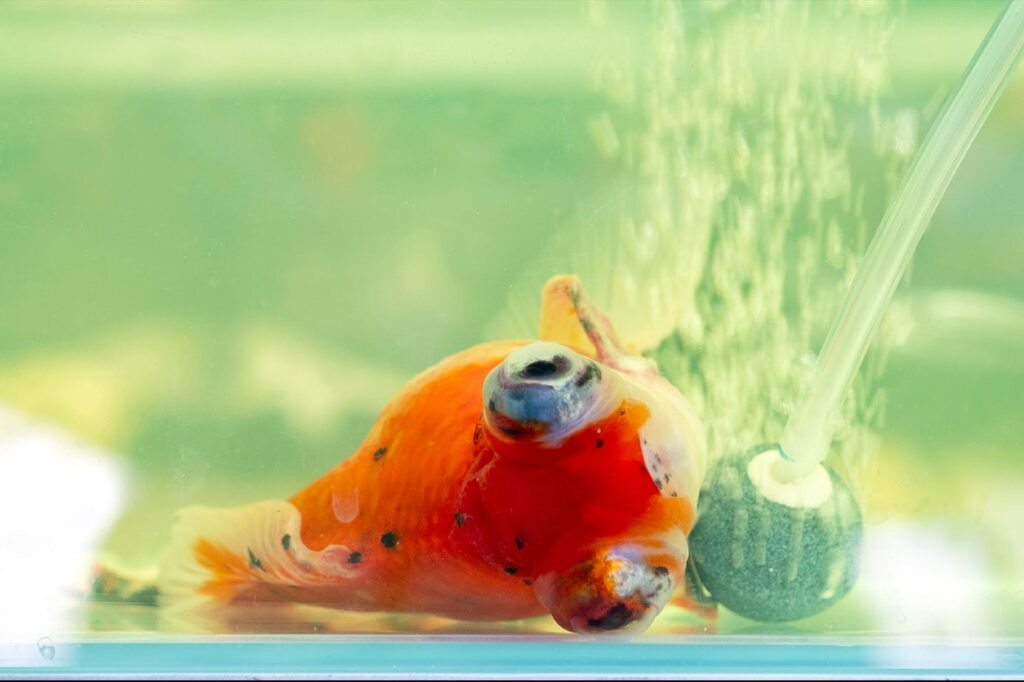
Oh, the tragedy! The little fella will belly up and you’ll be left wondering what went wrong. Most fish can play dead, but unfortunately not our beloved goldfish. Let’s discuss some reasons why your goldfish might be meeting their maker a bit too soon.
Common Goldfish Diseases
Are we looking at an aquatic outbreak here? Disease is often enemy number one for our golden swimmers. Goldfish can suffer from a host of illnesses, including the dreaded fin rot, ich, dropsy, and even goldfish herpes (talk about awkward conversations at the fish doctor). The best way to deal with these is to spot the signs early.
Inadequate Tank Conditions
Your goldfish aren’t just incredibly cute water ballet performers. They’re really picky about their aquatic halls. Too much or too little light, an unplanned pH jazz, sudden temperature spikes – these can all send Fluffy the Goldfish to fish heaven. Be attentive to tank conditions to keep your little swimmer happy.
Dietary and Nutrition Issues
“Just keep swimming, just keep eating,” said no goldfish ever. Overfeeding is a typical ‘goldfish owner’s mistake. Ever heard of swim bladder disease? It’s like giving your fish a permanent floatie they didn’t ask for! And poor diet? It’s like feeding them junk food nonstop. Make sure your goldfish’s food is balanced and not overdone.
Stress and How It Affects Goldfish
Yep, fish get stressed too. But they don’t get to fish yoga or meditate their woes away. Too many fish in the tank, aggressive tank mates or frequent changes in their environment can all cause a Fish-Freak-Out. Next time you see your goldfish swimming weirdly, it could be more than a new trick; it could be stress.
And that, dear reader, are the most common reasons why our beloved goldfish might bite the dust. Now that we’ve got that somber part out of the way, let’s talk about how we can prevent this. Off we go to the rescue in our next section: “Preventing the Losing Cycle.”
Preventing The Losing Cycle

In our journey through the world of goldfish care, we’ve tumbled through the tumultuous times of tank troubles and spotted the signs of sick goldfish. The next stop on our aquatic adventure? Prevailing over that pesky losing cycle. Let’s delve into the action steps to swerve away from sorrowful sights of sick fish and navigate towards a nirvana for our scaly friends.
The Importance of Regular Tank Maintenance
Consider your tank a fishy Ritz, your underwater Versailles. Your goldfish are the esteemed guests and they expect nothing less than five-star service. Regular tank maintenance goes beyond netting out the nasty bits. It’s about monitoring water chemistry, ensuring filters are fit and healthy, and keeping temperature constant (a goldfish disco inferno isn’t going to end well, trust me).
Just as a car won’t run smoothly without a tune-up, your goldfish tank requires your tender touch to ensure it’s not a toxic time-bomb for your fin-flapping family. Fire up some Marvin Gaye and give that tank the love it deserves.
Choosing the Right Food for Your Goldfish
Food – essential for both humans and fish alike. Feed them the wrong thing, and they’ll let you know about it. Their form of complaint, however, is a tad more dramatic than a Yelp review. Choosing the right food for your goldfish is more important than finding the perfect sushi roll on a Friday night.
Invest your pennies in high-quality flakes or pellets, but remember, variety is the spice of life! A sprinkle of veggies here, a dash of protein-packed treats there. It’s like a seafood buffet that keeps your little gold nuggets happy and healthy.
Implementing a Stress-Free Environment
Contrary to popular belief, fish don’t spend their time productively swimming calculus equations or sketching the next Mona Lisa. They are simple creatures with simple needs, and a stress-free environment is top of their wishlist.
To achieve this zen zone, think spacious tank, serene surroundings, and a stimulating setting complete with caves for hide-and-seek. Avoid surprise practices such as hands surfing through the tank or loud death metal concerts next to it. We’re tickling tranquility here, not training for an underwater Rock festival.
With these goldfish-guru guidelines under your belt, you’re almost ready to swap that losing cycle for a life cycle befitting the longest-living goldfish out there (43 years, in case you’re curious!). Hold on to your hats, stick your flippers on, and brace yourself – we’re going to delve into diagnosing and addressing the issues in a troubled goldfish tank next.
Fixing a Troubled Goldfish Tank
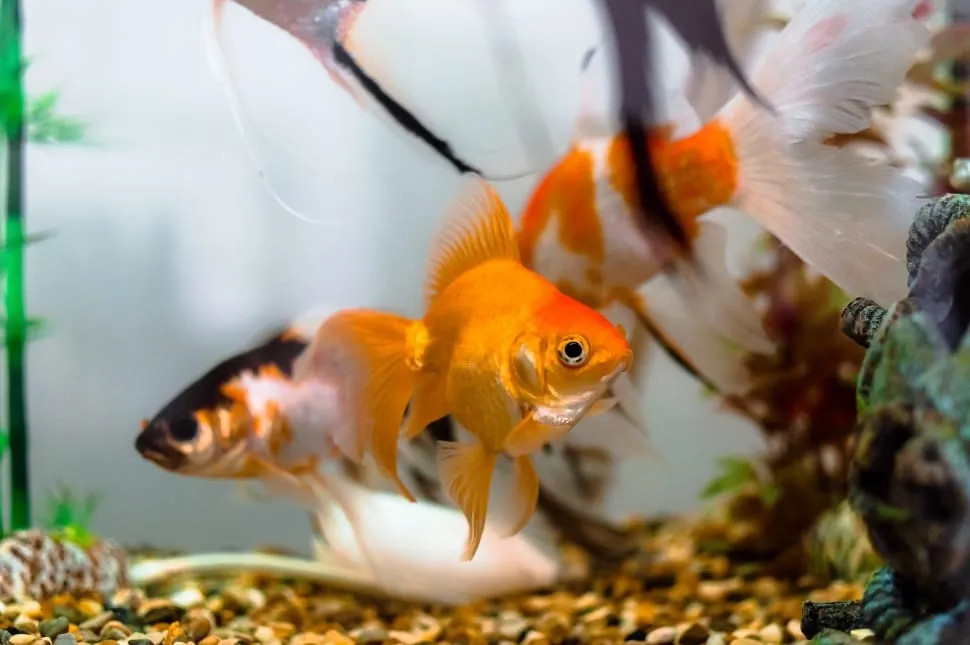
Your tank is murky, your goldfish are looking a little limp, and you might have heard tiny fishy coughs in the middle of the night. Fear not, you walked into the DIY goldfish hospital now, and we’re on the case together.
How to Identify a Sick Goldfish Early
In the fascinating world of goldfish, the early bird does catch the worm, or, more accurately, the early bird saves the fish! Flat fins, pale scales, reduced appetite. These are hallmarks of a fish in certifiable, no-good, absolutely rotten health.
Start by observing their behavior and physical appearance. Any changes? Write them down. Now, is your fish swimming like it’s in a Beyoncé dance-off? That’s another bad sign and it’s time for a fishy intervention.
When and How to Opt for a Tank Cleanse
Despite their lovable personalities, our gilled pals do love a nice, dirty, uncleaned tank. However, much like toddlers, we can’t let them swim in mud puddles. If your tank is starting to resemble a marsh more than an aquarium, it’s time for a tank cleanse.
Start by removing about 20% of the tank water (not in your goldfish’s presence; they’re sensitive). Replace it with dechlorinated fresh water. Remember, too much of a shock can harm our delicate divas, so make sure the new water temperature matches the old.
Introduction to Treatment Solutions
There’s a whole fish-pharmacy out there ready to help you. If a clean tank and premium fish food doesn’t patch up your fishy friend, medication might.
Look for ‘broad-spectrum’ medicines at a pet store. These are designed to handle a variety of ailments. But always consult with a vet if things worsen or persist longer than a week.
Now your gold-scaled patients should be on their way to recovery. But what if it’s too late? What’s the next step when a goldfish gets sick despite your best efforts? Tune in to our next section: Your Goldfish Losing Cycle Survival Guide. We’ll help you keep a cool head in fish-based emergencies. We’ve got your back, and your tank!
Your Goldfish Losing Cycle Survival Guide
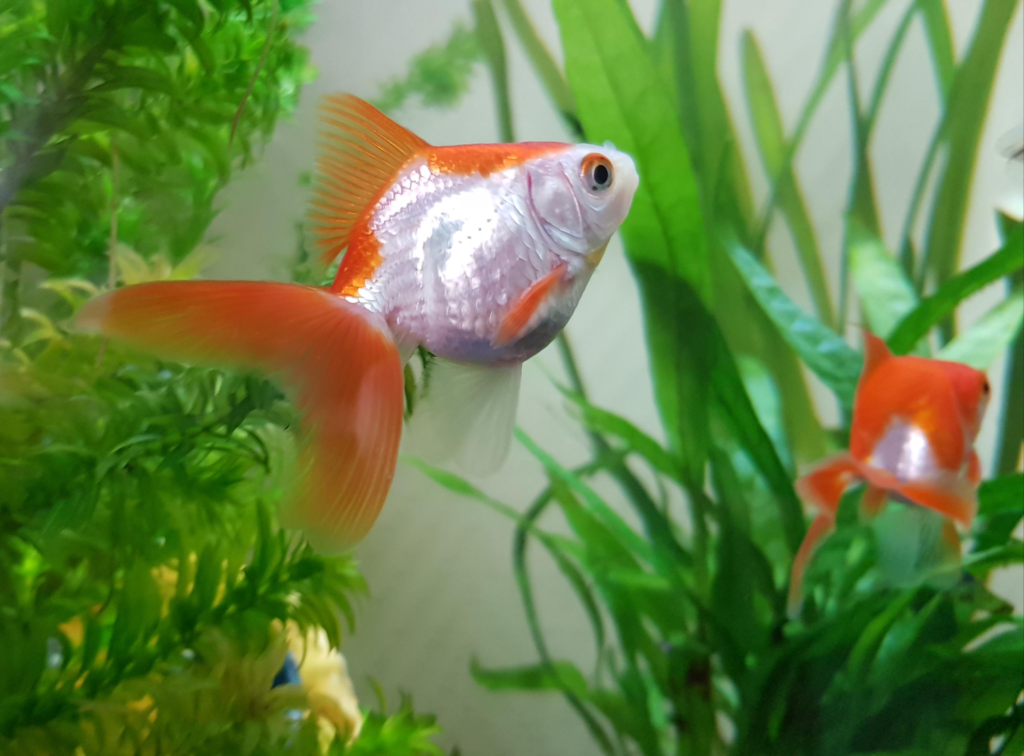
Having a goldfish is like having a piece of the ocean in your living room. It’s tranquil, captivating and, if we’re being honest, downright therapeutic. But when your finned friend starts showing signs of being unwell, it can turn your calm ocean into a stormy sea. In this section, we’ll navigate this storm together and come out victorious on the other side. Buckle up buddy, it’s time to play vet!
Immediate Steps to Take if Your Goldfish is Sick
The minute you spot your goldfish exhibiting odd behavior or physically looking under the weather, it’s almost like a stop sign, telling you something’s amiss. Usually, the telltale signs are loss of color, loss of appetite, strange swimming habits or visible spots and sores. The first step? Don’t panic!
Your immediate action should be to isolate your sick goldfish. Why? Well, just like we humans don’t want to infect our loved ones when we’re sick, goldfish too shouldn’t mingle when they’re not feeling up to the mark. The best way is opting for a separate ‘hospital tank’ that serves as an isolation ward. Remember to mirror the environment of the main tank to reduce stress.
While isolating sounds harsh, the second step is a lot friendlier – changing the water. This is like offering your goldfish a breath of fresh water, quite literally. Good quality water can be to a goldfish what chicken soup is to a sick person – comfort in a bowl!
As you take these steps, keep an eye out for any distinct changes and possibly document them. It might help in diagnosing the issue your goldfish might be facing.
How to Enhance the Goldfish Lifespan with Easy Tweaks
If there was a secret to immortality, we’d all be elbow-deep in that magic potion. But as that’s still a work in progress, let’s stick to what we have at hand: our best effort and some handy tweaks for our little golden companions.
Similar to your car needs regular service to hit the road smoothly, maintaining the tank environment regularly is the first key to unlock a longer lifespan. This includes the inclusion of live plants, regular cleaning, filtering, and controlling the population within the tank. Think of this as a comfortable living space, something like a goldfish penthouse!
The next key revolves around their food. Aim for a balanced diet which includes pellets or flakes specifically designed for goldfish, coupled with live or frozen food like daphnia or bloodworms. If you want to add a dash of variety, adding fruits or vegetables can turn into a culinary experiment of sorts. Remember to chop them finely to avoid any choking hazards.
Last but not least, stress management duties! Providing plenty of hiding spaces, avoiding rapid changes in temperature, and preventing overcrowding goes a long way in keeping your pet stress-free.
As we reach the end of our aquatic journey, it’s clear that maintaining a healthy goldfish isn’t always smooth sailing. It requires vigilance, care and a whole lot of love. So what are you waiting for? Dive in and watch your goldfish blossom under your loving attention.
To Sum Up
Understanding the goldfish’s tank environment is the primary step towards ensuring its longevity. Fair knowledge of how your goldfish interacts with their tank and the idea of its perfect conditions are crucial, while paying attention to the overlooked factors is non-negotiable.
Common goldfish diseases, inadequate tank conditions, and dietary issues all contribute to why goldfish may expire prematurely. Stress also profoundly affects goldfish life, highlighting the need for a serene environment. The relevance of regular tank maintenance, choosing the right diet, and implementing a stress-free habitat cannot be over-emphasized, as they contribute significantly to averting the losing cycle.
Being able to promptly identify when your goldfish is unwell and applying tank cleansing practices at the right time is essential. Exploring different treatment solution routes for fixing a troubled tank helps ensure a healthy, vibrant, long-living goldfish.
The fight against the goldfish losing cycle requires swift, decisive actions when your fish is sick. Notably, enhancing the lifespan of your goldfish can be achieved by applying simple, sustainable tweaks to their lifestyle and surroundings, thereby serving as your survival guide in your fish-rearing journey.
Frequently Asked Questions (FAQ)
Question: How can I tell if my goldfish is sick?
Answer: Some signs may include clamped fins, poor appetite, lethargy, visible sores or spots, gasping at the water’s surface or a noticeable change in their swimming pattern.
Question: What are some common goldfish diseases?
Answer: Common goldfish diseases include Swim Bladder Disease, Ich (White Spot Disease), dropsy, fin rot, and fungus among others.
Question: What causes stress in goldfish?
Answer: Stress in goldfish can be caused by a variety of factors — poor water conditions, drastic temperature changes, bullying by other fish, or regular overfeeding.
Question: Is maintenance for a goldfish tank important?
Answer: Yes, regular tank maintenance is crucial to avoid possible diseases and to keep the goldfish in a healthy environment.
Question: What kind of food is right for my goldfish?
Answer: A balanced diet of flakes or pellets specifically designed for goldfish, along with occasional treats of live, freeze-dried or frozen foods, is ideal.
Question: How can I ensure a stress-free environment for my goldfish?
Answer: You can do so by maintaining proper water conditions, providing ample space to swim, and avoiding overstocking the tank. A well-fed, non-stressed goldfish is a healthy goldfish.
Question: When should I execute a tank cleanse?
Answer: Tank cleaning should be part of the regular maintenance. However, a thorough cleanse may be required if your goldfish falls ill to prevent the spread of diseases.
Question: What are some ways to extend my goldfish’s lifespan?
Answer: Regularly change their water, do not overfeed, use appropriate filters, opt for balanced nutrition, and create a stress-free environment. With good care, goldfish can live for a good many years.

